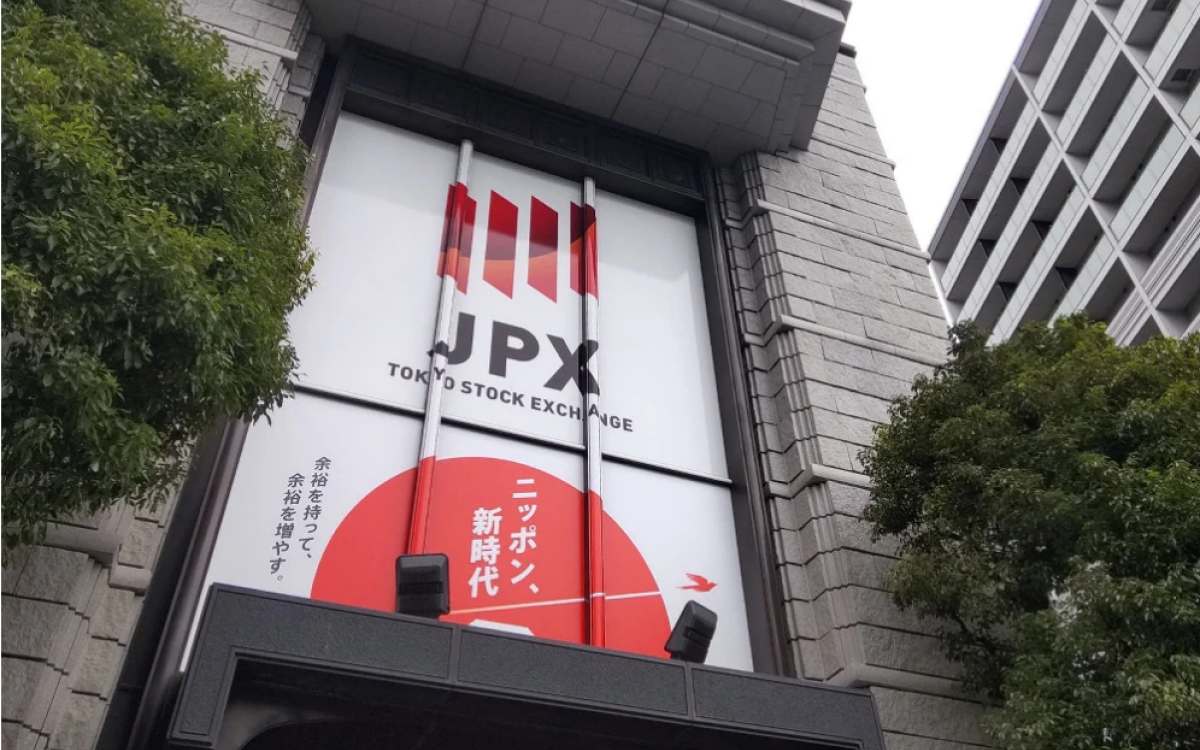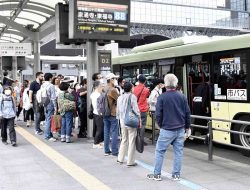
Tokyo Stock Exchange
12:23 JST, November 8, 2024 (updated at 16:30 JST)
TOKYO (Reuters) – Japan’s Nikkei share average rose on Friday, locking in its largest weekly gains since September, although downward revisions to corporate profits and uncertainty about whether Republicans would win both chambers of the U.S. Congress weighed.
The Nikkei .N225 closed0.3% higher at 39,500.37, while the broader Topix .TOPX ended down 0.03% at 2,742.15.
The Nikkei secured its biggest weekly gain since late September at 3.8%, rallying with Wall Street after former Republican President Donald Trump’s victory in the U.S. presidential election.
Japan’s AI-focused startup investor SoftBank Group 9984.T added 2.9% and was among heavyweight shares to follow their U.S. peers higher..N
Uniqlo parent firm Fast Retailing 9983.T and staffing agency Recruit Holdings 6098.T, up 0.8% and 4.4%, respectively, also lent support to the Nikkei.
However, investors were still waiting to see if Republicans manage to take control of both chambers of the U.S. Congress, which could affect how easily Trump can enact his proposals.
“It’s unclear whether we’re going to see a ‘Red sweep’ or a divided government situation. So momentum for the Nikkei to aggressively rise is not particularly strong at the moment,” said Masahiro Ichikawa, chief market strategist at Sumitomo Mitsui DS Asset Management.
Meanwhile, domestic corporate earnings have also “not been particularly good,” with companies in economically sensitive areas such as automakers posting more cautious earnings, limiting the upside for gains on the Nikkei, he added.
Corporate revenue releases drew out some of the biggest winners and losers on the Nikkei.
Electronics components maker Taiyo Yuden 6976.T tumbled 16%, cosmetic firm Shiseido 4911.T slipped 7%, while electronics maker Furukawa Electric 5801.T surged 17.4%.
Nissan Motor 7201.Tslumped as much as 10% after announcing on Thursday it will cut 9,000 jobs and 20% of its global manufacturing capacity.
It was last down 6.1%, along with Toyota 7203.T and Honda 7261.T, down 3.6% and 2.7%, respectively.
A relatively stronger yen versus the U.S. dollar JPY=EBS didn’t help sentiment for exporter shares.
Top Articles in News Services
-

Survey Shows False Election Info Perceived as True
-

Hong Kong Ex-Publisher Jimmy Lai’s Sentence Raises International Outcry as China Defends It
-

Japan’s Nikkei Stock Average Touches 58,000 as Yen, Jgbs Rally on Election Fallout (UPDATE 1)
-

Japan’s Nikkei Stock Average Falls as US-Iran Tensions Unsettle Investors (UPDATE 1)
-

Trump Names Former Federal Reserve Governor Warsh as the Next Fed Chair, Replacing Powell
JN ACCESS RANKING
-

Producer Behind Pop Group XG Arrested for Cocaine Possession
-

Japan PM Takaichi’s Cabinet Resigns en Masse
-

Man Infected with Measles Reportedly Dined at Restaurant in Tokyo Station
-

Israeli Ambassador to Japan Speaks about Japan’s Role in the Reconstruction of Gaza
-

Videos Plagiarized, Reposted with False Subtitles Claiming ‘Ryukyu Belongs to China’; Anti-China False Information Also Posted in Japan
























